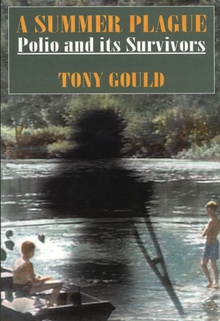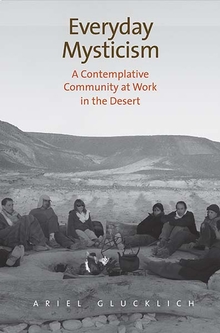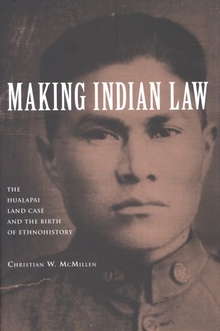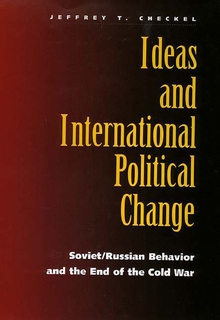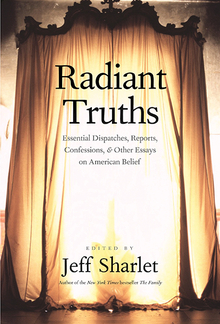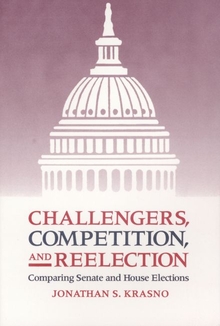A Summer Plague
WARNING
You are viewing an older version of the Yalebooks website. Please visit out new website with more updated information and a better user experience: https://www.yalebooks.com
Polio and Its Survivors
Tony Gould
This book is the most comprehensive and compelling account of the century's polio epidemics yet written. Interweaving biographical, political, social, and medical history, Tony Gould—a distinguished British writer and himself a polio survivor—traces the rise and fall of the epidemics and describes the individuals who were influential in its treatment and conquest. He tells of Franklin D. Roosevelt, the most celebrated polio sufferer of all, who set up his own hydrotherapy center at Warm Springs in Georgia; John Enders, the Nobel prizewinner who made the crucial breakthrough in the laboratory; FDR's lieutenant, Basil O'Connor, whose "March of Dimes" became a byword for successful fund-raising; Sister Elizabeth Kenny, the larger-than-life nurse from the Australian outback who challenged medical orthodoxy and invented "miracle" cures; and finally the scientific rivals Jonas Salk and Albert Sabin, caught in a dramatic race to produce a viable vaccine. Gould then examines the experience of polio survivors on both sides of the Atlantic, including a moving autobiographical account of his own struggle with the disease and resulting disability.
Although the disease has been eliminated in the West, it has not disappeared: paralytic polio remains a scourge in India, the Far East, and parts of Africa. And there are new worries that fatigue and accelerated muscular weakness—a "post-polio syndrome"—has come to afflict survivors three or four decades after the initial attack. Gould's powerful book, published forty years after the successful trial of the Salk vaccine, helps us to understand the savage and continuing impact of polio.
"The definitive book on the subject. . . . [Gould] writes vividly and feelingly of the scientific, social, and human aspects of this one terrifying affliction."—Parade
"A Summer Plague is about more than polio. It brilliantly shows how attitudes towards physical impairment highlight the enigmas of our society, with its peculiar blend of prejudice and progress, benevolence and bungling."—Roy Porter, The Observer
"An important contribution to our social history."—Stephen Tumim, Daily Telegraph
"In A Summer Plague, Tony Gould sets out to weave together the scientific, clinical, political and experimental strands in the history of the epidemic poliomyelitis. . . . [It] is a fitting tribute to all who survived it."—Colin Ward, New Statesman & Society
"A painstaking, wide-ranging survey of the onset of polio in the western world, the hunt for the competing vaccines developed by Jonas Salk (the most famous) and Albert Sabin (whose vaccines are now mostly used), and the lives of the survivors."—Victoria Neumark, Times Educational Supplement
"Immensely readable . . .[with] medical as well as historical significance."—Alice Stewart, Times Higher Education Supplement
"[Gould's] book thus has an appealing freshness, and his fascination in his researches rubs off. His account is split broadly into two sections: an anecdotal, well-read thematic history, and a series of personal interviews, including some thoughts on his own experiences. As a moving description of the personal impact of the virus these interviews would be hard to beat."—Simon Garfield, The Independent on Sunday
"A Summer Plague comes to be a book whose subject is not just the victims of a motiveless malignancy, but humanity itself. It goes one better than compassion. It reconciles us to chance. And to one another."—Howard Jacobson, The Independent
"[A Summer Plague is] a very moving and, in the end, curiously uplifting [book]."—John Keegan, Sunday Telegraph
"This [is a] meticulously researched and beautifully written account of the disease and its impact on human affairs."—Bernard Dixon, Biologist
"[This] book is extremely well researched, and factually accurate. . . . This is likely to become the standard historical account of this dread disease for many years to come."—G.C. Cook, Transactions of the Royal Society of Tropical Medicine and Hygiene
"Tony Gould's A Summer Plague is a welcome history of the disease and of the making of the vaccines that now protect our children, enlivened by first-hand accounts. It is an important story excellently told."—Vivian Wyatt, New Scientist
"The quest emerges from a blend of biographies, as personal, scientific and political stories are formed into a single compelling and coherent narrative. Gould's account opens up the much more challenging question of whether there are survival personalities."—John Battle, Yorkshire Post
"Gould does ample justice to the entire panorama...described in a colorful, fluid style...An air of calm and familiarity pervades the hundred pages the author gives over to these tales of perseverance and courage as he relates them one by one. [T]here are many proofs of its truth, among which is now the simple eloquence of Tony Gould when he writes about things he knows well, when he tells his deeply affecting stories of those who have endured polio, and his own story, too."—Sherwin B. Nuland, New Republic
"Gould's immensely readable account of these events is followed by an attempt to give added 'resonance' to the history of the poliomyelitis by describing the life histories of 14 polio survivors, and updating his own AP [After Polio] experiences."—Alice Stewart, Times Higher Education Supplement
"A timely and poignant chronicle for our times."—W. F. Bynum, Times Literary Supplement
"This entertaining, anecdotal history of the disease and its defeat includes the social and political issues involved. . . . While there are several other excellent books on this topic, none takes this work's particular anecdotal, dramatic, and detailed approach or covers so much social and personal history."—Library Journal
"This eminently readable book is a wonderful blend of the medical, social, and political history of poliomylitis as it occurred in the nineteenth and twentieth centuries in Europe and North America."—Judith R. Fischer, I.V.U.N News
"Stories of individual polio sufferers show other sides of pain, despair, and triumph. Science, medicine, and humanity are combined to form an integrated whole. I enjoyed this book very much, and I think that FDR, Sister Kenny, Salk, and Sabin would have enjoyed it too."—H. V. Wyatt, Perspectives in Biology and Medicine
"Mr. Gould has written a gripping account of the ravages of polio and the courage of ingenuity of those who fought it. It is at once a medical, social and political story accessible to all."—John Bryant, Canberra Times
"This is a comprehensive and highly readable account of polio in the twentieth century. It is meticulously researched, both scholarly and well-written, and weaves together into one tale the distinct social, political, and scientific stories of this disease. . . . Tony Gould has written a superbly crafted and comprehensive account of twentieth-century polio. Based on personal interviews with survivors and participants in the events, and the extensive use of both primary and secondary sources, this book is authoritative and a pleasure to read. The author has eminently succeeded in combining meticulous scholarship with excellent writing skills to create a story that is as compelling as it is powerful."—Pascal James Imperato, Journal of Community Health
"This fine volume belongs in all libraries."—Choice
"A Summer Plague is a solid, well-researched and excellent book, accomplished with restraint, subtlety and scholarship. . . . Overall, it is a comprehensive and compelling work on the history of polio. It will remain a landmark in both scope and detail, and an essential reference for anyone interested in the history of infectious diseases and epidemics."—Wai Chen, Social History of Medicine
"We don't expect to enjoy this history of polio and its aftermath, but British wirter and polio victim Gould sets a tone of irony that encourages amused fascination."—San Francisco Examiner and Chronicle
Publication Date: October 20, 1997
35 b/w illus.

